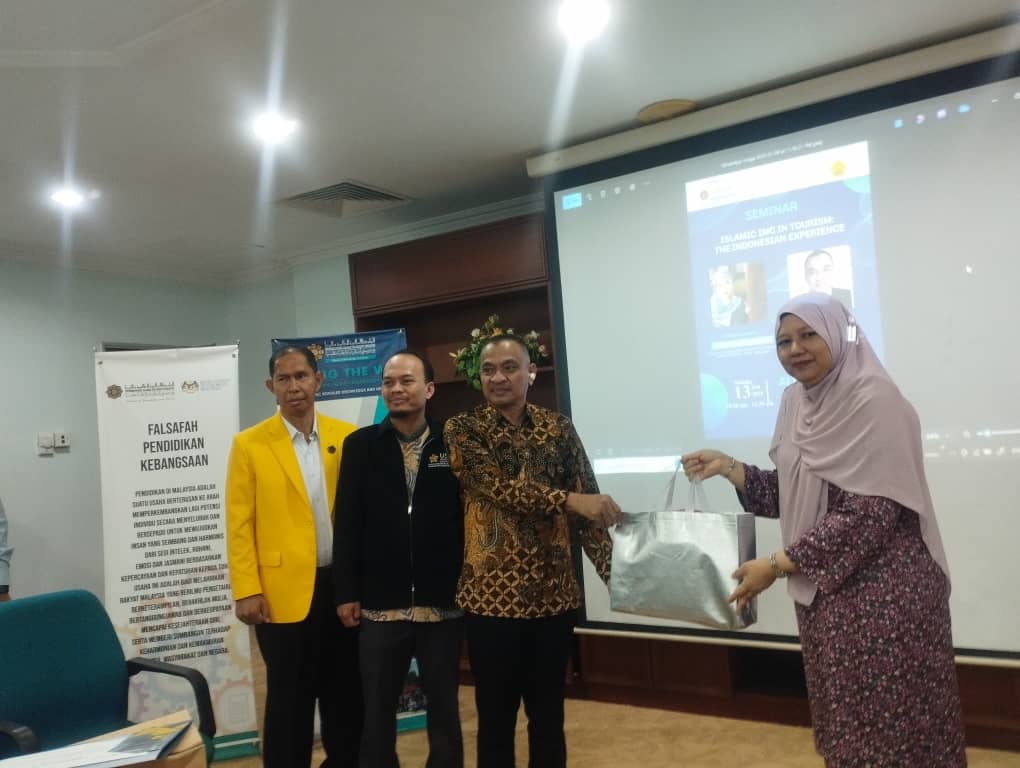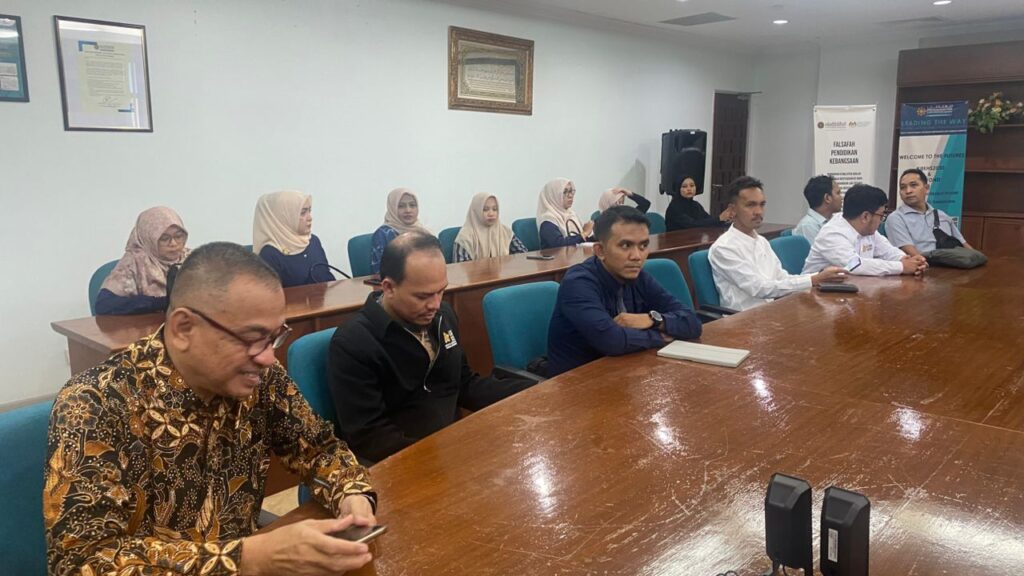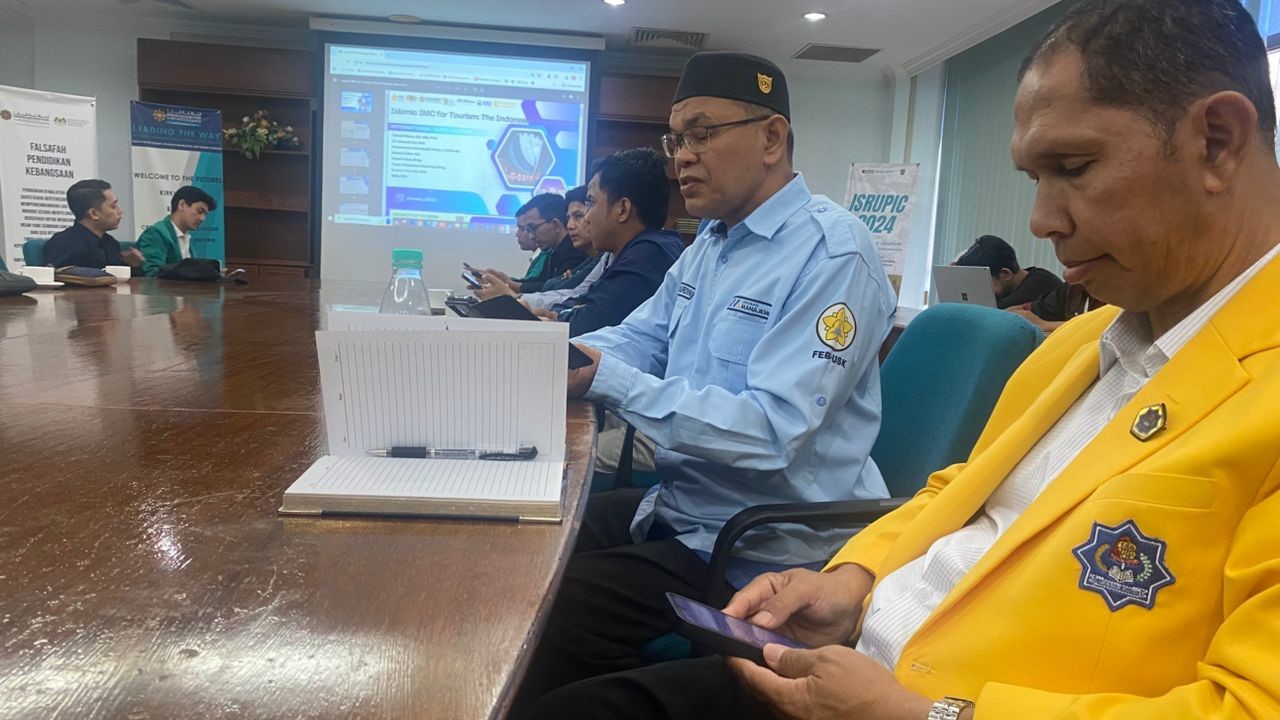By, Imad Hassan Basri
GOMBAK, 14 January 2025 – International Islamic University Malaysia (IIUM) today hosted a seminar on Islamic Integrated Marketing Communication (IMC) in Tourism: The Indonesian Experience. The event took place on 13 January from 10.00 a.m. to 11.30 a.m. at Al-Tabari Meeting Room, HS Building, AHAS KIRKHS, IIUM Gombak. The session began with the opening remarks by Assoc. Prof. Dr. Aida Mokhtar, Lecturer, Department of Communication, AHAS KIRKHS, followed by a presentation from Dr. Ahmad Nizam, S.E., M.M., Lecturer, Department of Management, Faculty of Economics and Business, Universitas Syiah Kuala, Aceh, Indonesia. It was attended by delegates from Universitas Syiah Kuala, Aceh, Indonesia, as well as students from the Department of Communication, IIUM.
In the opening remarks, Assoc. Prof. Dr. Aida expressed her strong interest in Islamic IMC, noting, “Some people do not accept the approach, saying that religion and advertising do not go together. Actually, Islam should go beyond our basic ibadah. It is our responsibility as Muslims to promote Islamic advertising. Allah goes first before profits.” She hoped the session would benefit the delegates, considering Aceh’s potential as a hub for Islamic tourism and the relevance of implementing Islamic IMC.
Dr. Ahmad Nizam discussed the seminar’s aim of exploring collaboration opportunities with UKM, IIUM, and UPM to gain international support for promoting Islamic IMC in tourism, especially in Indonesia. He remarked, “According to the Aceh Central Statistics Agency, Aceh received 3,042 visits in August alone, with 2,217 from Malaysia, 50 each from France and Germany, and 775 from other countries.” This strong indication of international interest, especially from the Muslim Malaysians, underscores the need for Islamic tourism and highlights the relevance of implementing Islamic IMC to better cater to this growing market.
He also outlined efforts in Aceh to create a halal tourism experience, including rebranding initiatives that integrate Islamic values into existing guidelines. “We use national broadcasting regulations but add Islamic values. Posters must include sharia-compliant illustration or photography, and language must align with Islamic principles,” he said. It is also notable that Aceh is also supervised by Wilayatul Hisbah, the primary institution responsible for overseeing and ensuring the implementation of Islamic Sharia in the region. This includes governance, public conduct, dress codes, halal certification, and criminal law under Sharia principles.
Following this, regulations require hotels in Aceh to verify marriage certificates for couples to ensure compliance with Islamic law, and tour guides must inform visitors about Sharia-based rules, such as dress codes and separate accommodations for non-Muslims. “Even attractions like white-water rafting must enforce Sharia-compliant clothing and maintain appropriate distance guidelines for visitors,” he added.
Lastly, Dr. Ahmad Nizam highlighted last year’s ‘Khazanah Piasan Nanggroe 2024’ as an example of a successful attempt of Islamic tourism branding in Aceh. Now, they are venturing to combine Islamic principles with technology for destination branding, including ICT and IoT, to develop tailored strategies that align with cultural and religious values, enhancing Indonesia’s competitiveness in global tourism. Emphasizing the Islamic principles of cleanliness and environmental preservation, he called for integrating these values into tourism practices.***


- Double Win: Best Paper and Best Presenter Awards at ICoGESD 2025 - December 3, 2025
- AHAS KIRKHS ‘Ibādah Camp 2025: Empowering the Role of Murabbi for a Resilient Ummatic Future - December 1, 2025
- GALEP 2.0 – Fostering Global Academic Leadership - November 27, 2025
